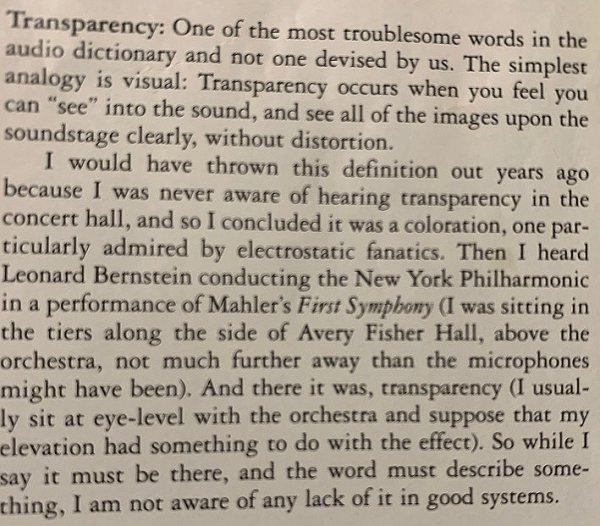Yes, I think you're right. Would you characterize warmth and haziness as distortion?
I would probably say 'more neutral.' My notion that there is no neutral - no objective or absolute neutral - partially comes from the fact that between, say, the cartridge and speakers there are a whole lot of physical parts whose physicality can't help but shape a signal. Take away two of the most common, namely transformers and capacitors on the output side, and the result would seem to be obvious - and that obviousness pretty much demonstrates the distortive impact those parts can have on sound.
Then you have gear such as Lamm - it has caps and transformers yet its circuit topology yields a sound that is so beguiling; it is so very easy to listen to music through Lamm gear. In direct side by side comparisons both the Atma-Sphere OTL and Lamm M1.2 don't lose that much to each other - imo. The OTL is more articulate, digs deeper into both lows and highs, may actually be a tad harmonically richer - all for the lack of parts, or put differently all from the removal of distortion. Of course none of that changes the compelling character of the Lamm sound.
Sometimes our words create starker contrasts than actual perceptions or 'psychoacoustically enhanced' perceptions. Pin a 'lean' label on a piece of audio equipment and most (not all) will say, "oh no, I don't want that." If someone gives such a characterization, I always ask: what is the antonym? In the case of 'lean', would you rather have 'fat'? When people say Lamm gear is 'dark' , is the contrast 'light'? No, the proper contrast (imo) is 'thin' - dark is the wrong word, though for many it comes first to mind.
That's why I'm thinking more and more in terms of relative amounts of distortion and less of common characterizing terminology. Many of us audiophiles will reflexively shrink back when asked what sort of distortions do we prefer. But maybe that's what is happening, a preference for this or that distortion - a happy distortion.
That sort of approach can get in trouble though when it bumps up against the word 'natural.' Maybe the antonym of natural is 'reproduced.'







